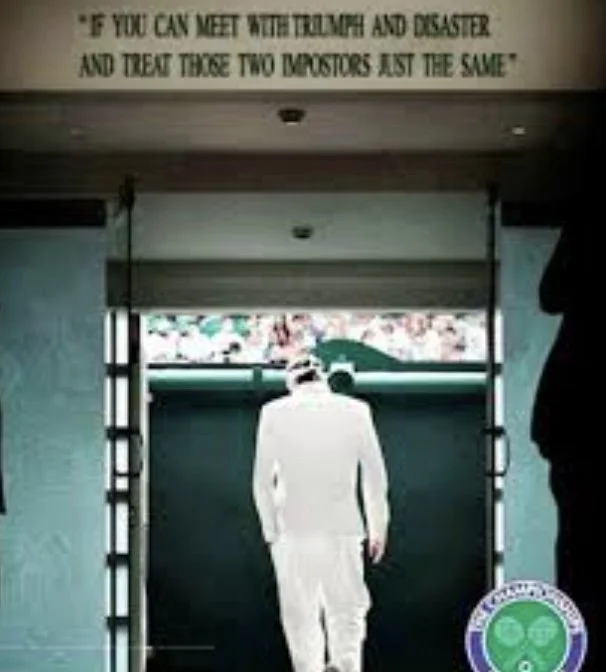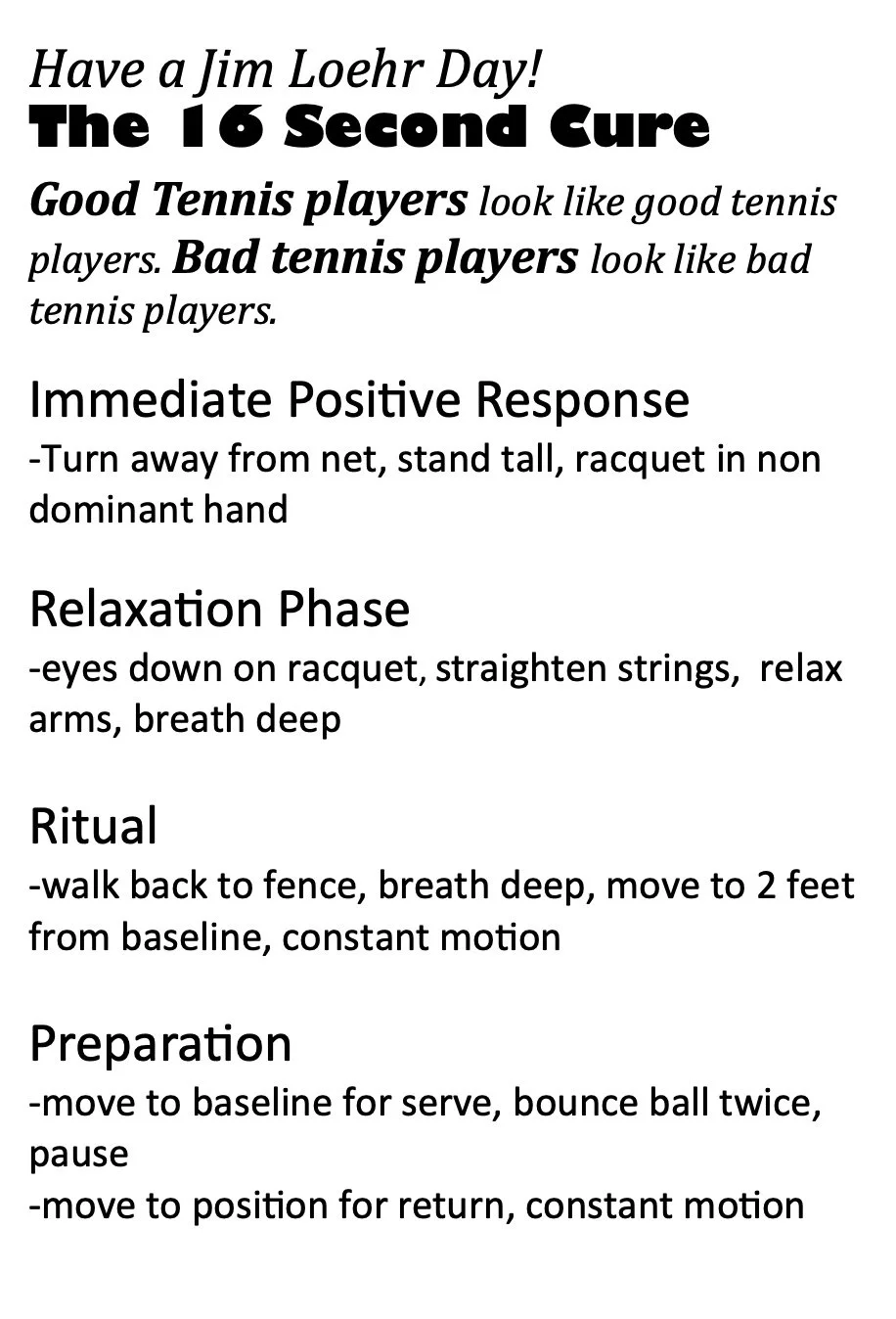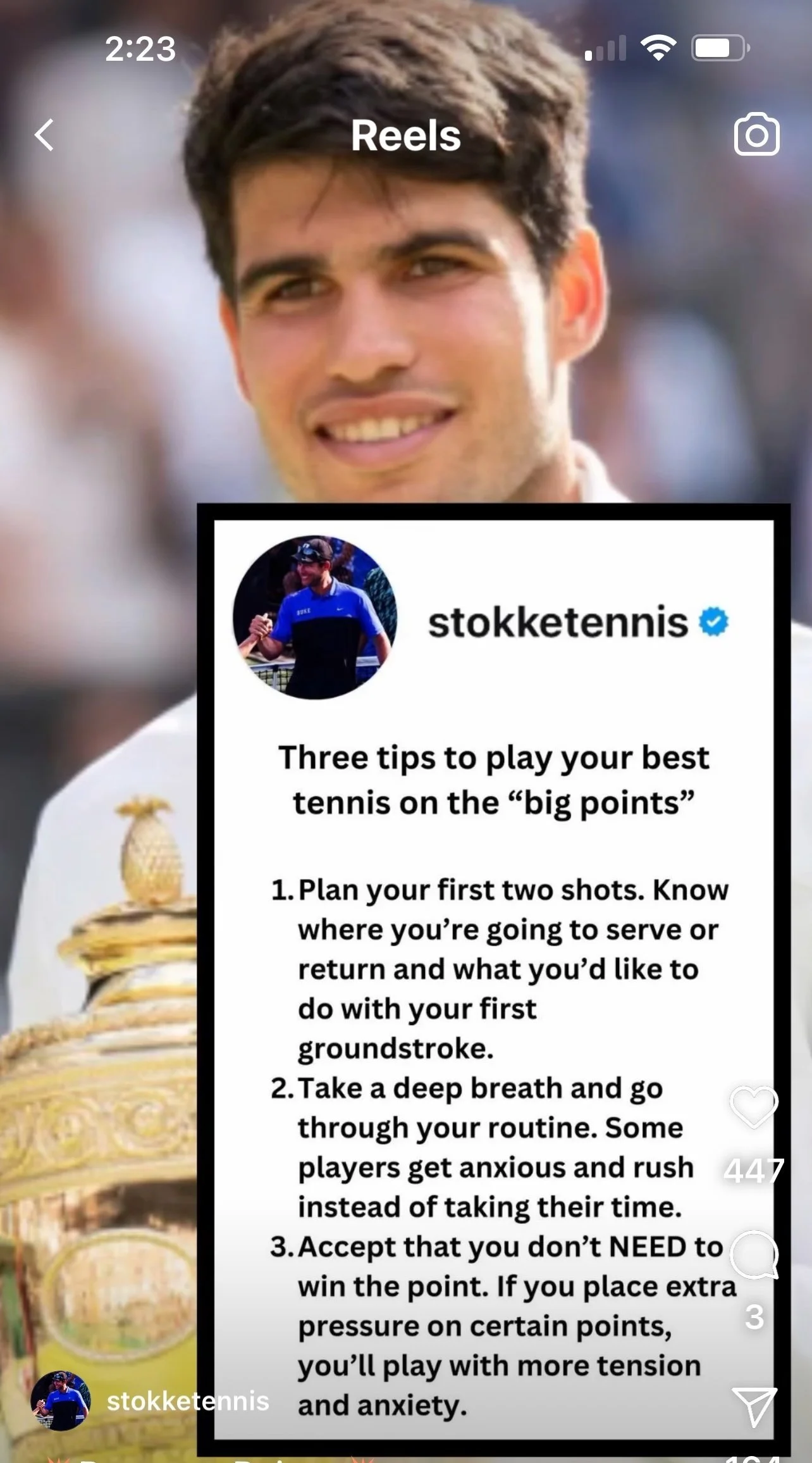Lesson 14 The Practice: Centre Court Wimbledon
“If you can meet with Triumph and Disaster… And treat those two impostors just the same.”
Every player entering Centre Court at Wimbledon passes beneath these words, an excerpt from Rudyard Kipling’s poem If.
This timeless wisdom speaks directly to the ultimate mental challenge on the tennis court: managing success and failure with composure. Triumph and disaster, fleeting and deceptive, test our ability to remain steady and focused, regardless of outcomes. How we approach these "impostors" not only influences our performance but shapes our growth as individuals.
Lessons from Federer
Roger Federer, one of the greatest tennis players in history, shared a profound insight during his commencement address at Dartmouth. Across his career, Federer won an incredible 80% of his matches. Yet, within those matches, he won only 54% of the points. This means he lost nearly half of the points he played.
What does this teach us? Greatness isn’t about avoiding failure; it’s about handling failure better than your opponent. Federer’s success stemmed from his ability to:
Learn from mistakes.
Let go of errors quickly.
Refocus on the next point with clarity and purpose.
Imagine the impact on your game if you could embrace this mindset—letting go of mistakes and playing each point as a fresh opportunity.
The Quality of Attention
Consider this: How does the quality of your attention affect the quality of your experience?
Take a moment to reflect. The way we direct our attention profoundly shapes our experience, whether on the court or in life.
When the mind is calm and collected, we approach challenges with clarity and skill.
When the mind is agitated, everything feels harder, and our performance suffers.
Mindfulness invites us to slow down and notice the quality of our attention, connecting us to the present moment and its impact on our performance and well-being.
Ask yourself:
How does the quality of your attention affect your performance?
How does it shape your experience, both on and off the court?
What happens when you meet adversity with a calm, centered mindset?
“Don’t be afraid of failure. This is the way to succeed.”
Feeding the Right Wolf
A Cherokee story offers insight into how our awareness shapes our experience.
An elder explains to his grandson about a battle happening within every person: two wolves locked in constant struggle.
One wolf represents anger, envy, greed, arrogance, and ego.
The other wolf symbolizes joy, love, kindness, humility, forgiveness, and compassion.
The grandson asks, “Which wolf will win?”
The elder replies, “The one you feed.”
This story reminds us that where we direct our energy and attention shapes our experience. On the court, we can choose to “feed the good wolf” by focusing on positivity, resilience, and skillful effort instead of frustration, self-doubt, or anger.
“If you want to be successful, I would encourage you to grow a tolerance for failure.”
On the Court Tip: Body Language… Make the Same Whether Winning or Losing
Growing up, my coach placed a strong emphasis on on-court behavior and sportsmanship. Poor behavior—verbal outbursts, smashing rackets, or sulking—often resulted in 50 kangaroo jumps or being excused from practice until the next day.
One lesson that stuck with me was the importance of positive body language. My coach taught us that our body language should never reveal whether we were winning or losing. Maintaining a calm, neutral demeanor prevents your opponent from gaining confidence and keeps you mentally steady, regardless of the score.
One More Thought…
Like many players, I often placed immense pressure on myself to perform perfectly. This pressure was detrimental to my game until my coach introduced a simple yet powerful technique: acknowledging my opponent’s good shots.
Saying “nice shot” after an impressive play served two purposes:
It released the pressure I felt to control every point.
It fostered a positive mental atmosphere, which improved my focus and attitude.
I encourage you to try this in your next match. Acknowledging your opponent’s strengths might feel counterintuitive, but it can profoundly shift your mindset, just as it did for me during my junior years.
By embracing calm attention, positive body language, and a mindset that welcomes both triumph and disaster with equanimity, you’ll not only elevate your game but also grow as a person.
Let these principles guide you, on and off the court.
“If you can’t accept losing, you can’t win.”
Jim Loehr was one of the first sport psychologist in the country and his teachings still hold true today.
“If it doesn’t challenge you, it won’t change you. ”
“a sign of growth is being okay with not being okay.”



